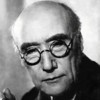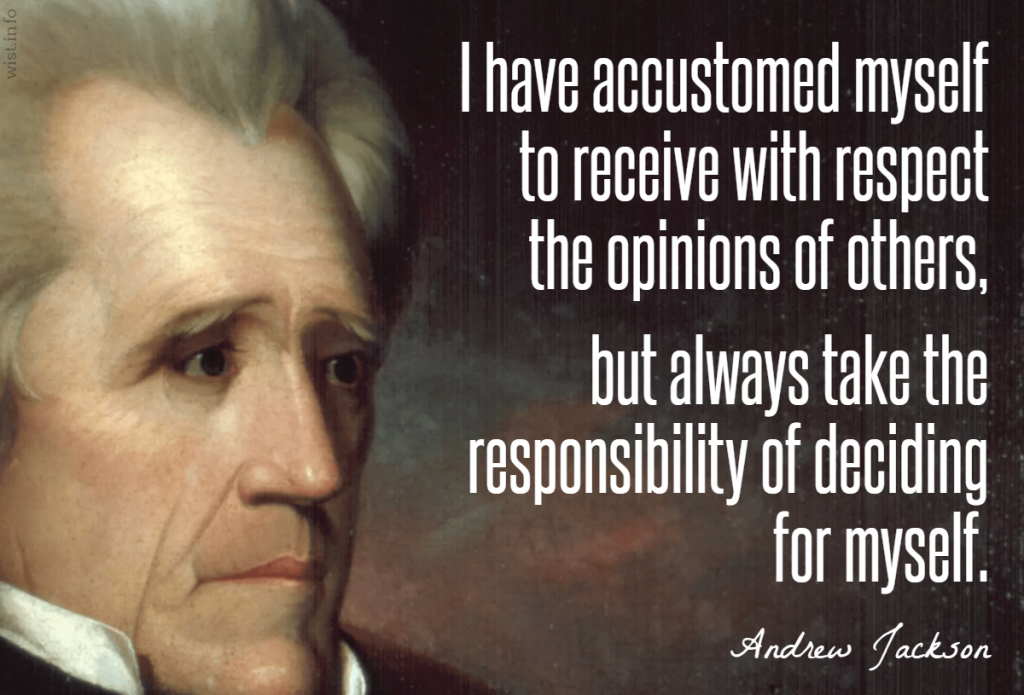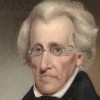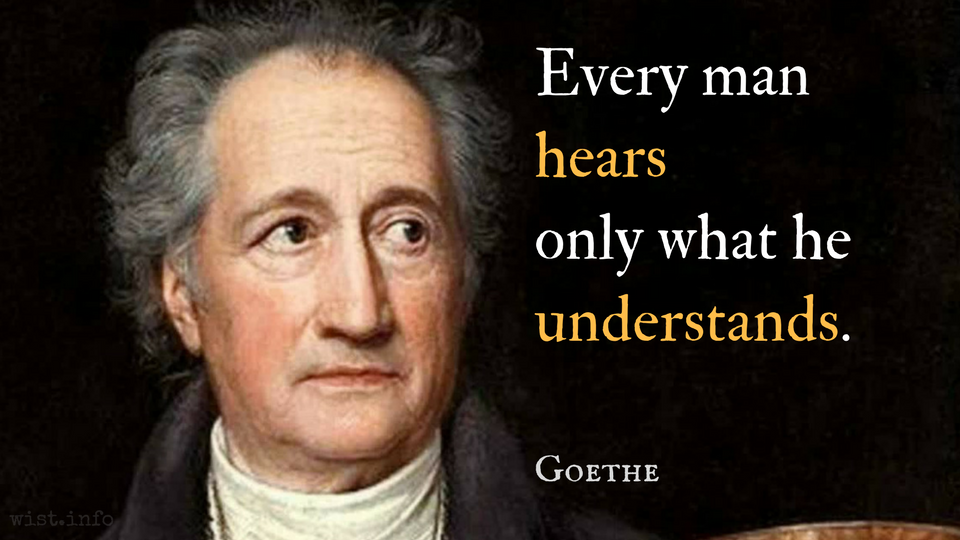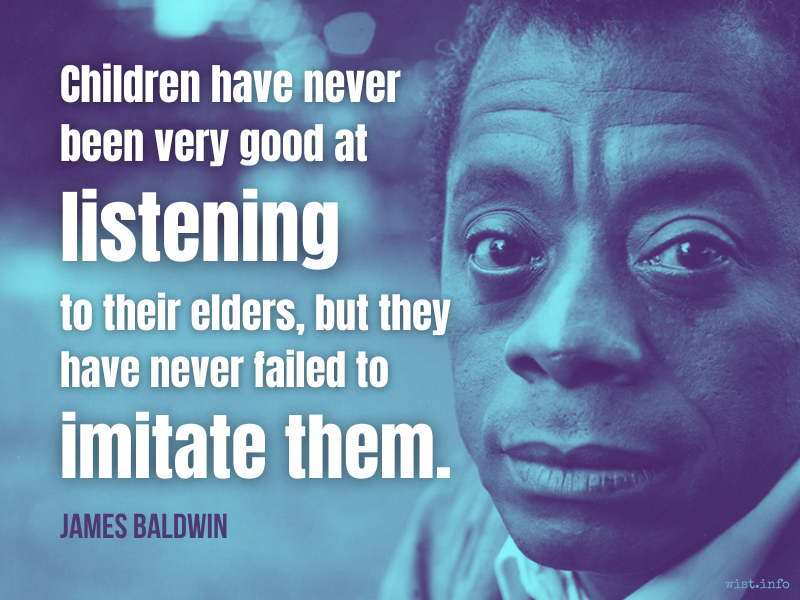And when I answer such letters I add something else: “Seek a humble sort of thing.” Our hearts often look for something very big, something wanting a lot of sacrifice, and often our heart does not see the humble things. At first you must learn to do the humble things and often they are the most difficult to do.
In those humble things, be busy about helping someone who has need of you. You see somebody alone — try and be with him, try to give him some of the hours which you might take for yourself and in that way learn to serve: and then only will you begin to find true happiness.
I don’t know what your destiny will be. Some of you will perhaps occupy remarkable positions. Perhaps some of you will become famous by your pens, or as artists. But I know one thing: the only ones among you who will be really happy are those who have sought and found how to serve.Albert Schweitzer (1875-1965) Alsatian philosopher, physician, philanthropist, polymath
Speech (1935-12-03), Silcoates School, Wakefield, England
(Source)
Speaking of when he receives letters from people asking how to find a worthwhile cause to pursue. Translated from French by his interpreter.
Recorded in The Silcoatian, No. 25 (1935-12).
Often paraphrased down to: "Those of you who will be truly happy are those who have sought, and found, how to serve."
Quotations about:
listening
Note not all quotations have been tagged, so Search may find additional quotes on this topic.
Sam Vimes could parallel process. Most husbands can. They learn to follow their own line of thought while at the same time listening to what their wives say. And the listening is important, because at any time they could be challenged and must be ready to quote the last sentence in full. A vital additional skill is being able to scan the dialogue for telltale phrases such as “and they can deliver it tomorrow” or “so I’ve invited them for dinner” or “they can do it in blue, really quite cheaply.”
Terry Pratchett (1948-2015) English author
Discworld Series No. 24, The Fifth Elephant (1999)
(Source)
One of the reasons why there are so few reasonable and pleasant conversationalists is that almost everyone concentrates on what he wishes to say, rather than attempting to give accurate and clear replies to what is said to him.
[Une des choses qui fait que l’on trouve si peu de gens qui paroissent raisonnables et agréables dans la conversation, c’est qu’il n’y a presque personne qui ne pense plutôt à ce qu’il veut dire qu’à répondre précisément à ce qu’on lui dit.]
François VI, duc de La Rochefoucauld (1613-1680) French epigrammatist, memoirist, noble
Réflexions ou sentences et maximes morales [Reflections; or Sentences and Moral Maxims], ¶139 (1665-1678) [tr. FitzGibbon (1957), ¶139]
(Source)
Present in the 1st (1665) edition. A 1665 variant read "quasi personne" rather than "presque personne."
See also Proverbs 18:13.
(Source (French)). Other translations:There may be several causes assigned why we meet with so few persons, whom we allow to be rational and divertive in conversation. Of which this is one, that there is hardly any body, whose thoughts are not rather taken up with what he hath a mind to say himself, than in precisely answering what had been said to him; and that persons of greatest abilities and complaisance think it.
[tr. Davies (1669), ¶186]One reason, why we find so very few Men of Sense and agreeable Conversation, is, That almost every bodies mind is more intent upon what he himself hath a mind to say, than upon making pertinent Replies to what the rest of the Company say to him.
[tr. Stanhope (1694), ¶140]One reason why we meet with so few people who are reasonable and agreeable in conversation is, that there is scarce any body who does not think more of what he has to say, than of answering what is said to him.
[pub. Donaldson (1783), ¶64; ed. Lepoittevin-Lacroix (1797), ¶134]We meet with few men who are agreeable in conversation: the reason is, we think more of what we have to advance, than of what they have to answer.
[ed. Carvill (1835), ¶53]One thing which makes us find so few people who appear reasonable and agreeable in conversation is, that there is scarcely any one who does not think more of what he is about to say than of answering precisely what is said to him.
[ed. Gowens (1851), ¶142]One of the reasons that we find so few persons rational and agreeable in conversation is there is hardly a person who does not think more of what he wants to say than of his answer to what is said.
[tr. Bund/Friswell (1871), ¶139]One reason why so few people converse agreeably or logically is that a man pays more attention to his own utterances than to giving an exact answer to questions put to him.
[tr. Heard (1917), ¶139]One of the reasons why so few people show themselves intelligent and agreeable in conversation is that almost every one is intent on what he wants to say himself rather than on replying with exactness to what is said to him.
[tr. Stevens (1939), ¶139]One reason why so few people are intelligent and attractive in conversation is that almost everybody thinks of what he wants to say instead of how to answer properly what has been said to him.
[tr. Kronenberger (1959), ¶139]One of the reasons so few people are to be found who seem sensible and pleasant in conversation is that almost everybody is thinking about what he wants to say himself rather than about answering clearly what is being said to him.
[tr. Tancock (1959), ¶139]One reason why we find so few people who appear reasonable and agreeable in conversation, is that there is almost no one who does not think more about what he wishes to say than about pertinently replying to what is said to him.
[tr. Whichello (2016) ¶139]
Being listened to should be sufficiently gratifying in itself, whether or not the advice is followed.
Judith Martin (b. 1938) American author, journalist, etiquette expert [a.k.a. Miss Manners]
“Miss Manners,” syndicated column (2014-05-11)
(Source)
Not being heard is no reason for silence.
[N’être pas écouté, ce n’est pas une raison pour se taire.]
Victor Hugo (1802-1885) French writer
Les Misérables, Part 2 “Cosette,” Book 8 “Cemeteries Take What is Given Them,” ch. 1 (2.8.1) (1862) [tr. Wilbour (1862)]
(Source)
(Source (French)). Alternate translations:Not to be heard is no reason why a man should hold his tongue.
[tr. Wraxall (1862)]That one is not listened to is no reason for preserving silence.
[tr. Hapgood (1887)]Not being heard is no reason for silence.
[tr. Wilbour/Fahnestock/MacAfee (1987)]Not being listened to is no reason to stop talking.
[tr. Donougher (2013)]
Were we as eloquent as angels, yet should we please some men, some women, and some children much more by listening than by talking.
Charles Caleb "C. C." Colton (1780-1832) English cleric, writer, aphorist
Lacon: Or, Many Things in Few Words, Vol. 1, § 13 (1820)
(Source)
HEAVEN, n. A place where the wicked cease from troubling you with talk of their personal affairs, and the good listen with attention while you expound your own.
Ambrose Bierce (1842-1914?) American writer and journalist
“Heaven,” The Cynic’s Word Book (1906)
(Source)
Included in The Devil's Dictionary (1911). Originally published in the "Devil's Dictionary" column in the San Francisco Wasp (1885-05-23).
The art of conversation, or the qualification for a good companion, is a certain self-control, which now holds the subject, now lets it go, with a respect for the emergencies of the moment.
Ralph Waldo Emerson (1803-1882) American essayist, lecturer, poet
Journal (1854)
(Source)
Reprinted in Journals of Ralph Waldo Emerson, 1820–1872, Vol. 3 (1912).
He listens well
Who takes notes.[Bene ascolta chi la nota.]
Dante Alighieri (1265-1321) Italian poet
The Divine Comedy [Divina Commedia], Book 1 “Inferno,” Canto 15, l. 99ff (15.99) (1309) [tr. James (2013)]
(Source)
Virgil either warning Dante to consider all the predictions / warnings he's receiving from the damned about "future" political troubles, or else praising him for appearing to have remembered them (interpretations vary).
(Source (Italian)). Alternate translations:He listens well, who what he hears remarks.
[tr. Rogers (1782), l. 96]"Unhappy is the man," exclaim'd my Guide,
"From whose weak mind the words of wisdom glide."
[tr. Boyd (1802), st. 18]He listens to good purpose who takes note.
[tr. Cary (1814)]Well doth he hear, who marks what he hath heard.
[tr. Dayman (1843)]He listens well who notes it.
[tr. Carlyle (1849)]He listens well who notes.
[tr. Bannerman (1850)]He listens well who noteth well.
[tr. Johnston (1867)]He listeneth well who noteth it.
[tr. Longfellow (1867)]Well listens he who marks it.
[tr. Butler (1885)]Who noteth well, he well doth hear.
[tr. Minchin (1885)]He listens well who notes it.
[tr. Norton (1892)]He listeneth well that layeth it to heart.
[tr. Sullivan (1893)]He listens well who notes the matter.
[tr. Griffith (1908)]He is a good listener who takes note.
[tr. Sinclair (1939)]He listens well who noteth well the word.
[tr. Binyon (1943)]Well-heeded is well-heard.
[tr. Sayers (1949)]Well heeded is well heard.
[tr. Ciardi (1954)]He who notes it listens well.
[tr. Singleton (1970)]He listens well who notes well what he hears.
[tr. Musa (1971)]He who takes note of this has listened well.
[tr. Mandelbaum (1980)]Those are the words of a good listener!
[tr. Sisson (1981)]He who has listened well will understand.
[tr. Pinsky (1994)]He listens well who takes note.
[tr. Durling (1996)]He listens closely, who notes it.
[tr. Kline (2002)]"Those listen well," he said, "who take good note."
[tr. Kirkpatrick (2006)]He listens well who takes in what he hears.
[tr. Hollander/Hollander (2007)]It's good
To hear such words, for they are truly profound.
[tr. Raffel (2010)]
Take care never to speak what you have not weighed and pondered beforehand; nor interject your own words on the spur of the moment and in the midst of another’s; for you must listen and converse in turn, with set times for speech and for silence.
Clement of Alexandria (c. AD 150 - c. 215 ) Christian theologian, philosopher, Church Father [Κλήμης ὁ Ἀλεξανδρεύς, Titus Flavius Clemens]
“To the Newly Baptized / Exhortation to Endurance” [tr. Butterworth]
(Source)
To be kind is more important than to be right. Many times, what people need is not a brilliant mind that speaks but a special heart that listens.
Nobody really listens to anyone else, and if you try it for a while you’ll see why.
Mignon McLaughlin (1913-1983) American journalist and author
The Second Neurotic’s Notebook, ch. 3 (1966)
(Source)
Women are good listeners, but it’s a waste of time telling your troubles to a man unless there is something specific you want him to do.
Mignon McLaughlin (1913-1983) American journalist and author
The Neurotic’s Notebook, ch. 3 (1963)
(Source)
To a talkative fellow, who poured out a torrent of words and then said, “Let’s hope I haven’t been boring you with my chatter!” he replied, “No, by Zeus, I haven’t been listening.”
[πρὸς τὸν εἰπόντα ἀδολέσχην, ἐπειδὴ αὐτοῦ πολλὰ κατήντλησε, “μήτι σου κατεφλυάρησα;” “μὰ Δί᾽,” εἶπεν: “οὐ γάρ σοι προσεῖχον.]
Aristotle (384-322 BC) Greek philosopher
Attributed in Diogenes Laërtius, Lives and Opinions of Eminent Philosophers [Vitae Philosophorum], Book 5, sec. 11 [tr. Mensch (2018)]
(Source)
(Source (Greek)). Alternate translations:A chattering fellow, who had been abusing him, said to him, “Have not I been jeering you properly?” “Not that I know of,” said he, “for I have not been listening to you.”
[tr. Yonge (1853)]To the chatterbox who poured out a flood of talk upon him and then inquired, "Have I bored you to death with my chatter?" he replied, "No, indeed; for I was not attending to you."
[tr. Hicks (1925), sec. 20]To the man talking endlessly when he assailed him with words and asked “Have I worn you out with nonsense”, he said “By Zeus, no! I wasn’t listening to you.”
[tr. @sentantiq (2016)]
Not listening is probably the commonest unkindness of married life, and one that creates — more devastatingly than an eternity of forgotten birthdays and misguided Christmas gifts — an atmosphere of not loving and not caring.
I have accustomed myself to receive with respect the opinions of others, but always take the responsibility of deciding for myself.
I am very little inclined on any occasion to say anything unless I hope to produce some good by it.
Abraham Lincoln (1809-1865) American lawyer, politician, US President (1861-65)
Speech (1862-08-06), Union (War) Meeting, US Capitol steps, Washington, D. C.
(Source)
You aren’t learning anything when you’re talking.
Lyndon B. Johnson (1908-1973) American politician, educator, US President (1963-69)
(Attributed)
(Source)
Sometimes given as "You ain't learning anything when you're talking."
Reported, not as a quote, but as a sign on his wall while a US Senator, in Leslie Carpenter, "A Man of Complexity," Boston Herald (1963-12-01), read into the Congressional Record, House of Representatives (1963-12-03) by House Speaker John W. McCormack (D-RI).
As a matter of fact, have you never noticed that most conversations are simply monologues delivered in the presence of a witness?
Margaret Millar (1915-1994) American-Canadian mystery and suspense writer
The Weak-Eyed Bat (1942)
(Source)
Often misattributed to Mark Twain, usually as "Most conversations are simply monologues delivered in the presence of witnesses."
More information on this quote's origins: Most Conversations Are Simply Monologues Delivered in the Presence of a Witness – Quote Investigator®
Children have never been very good at listening to their elders, but they have never failed to imitate them.















